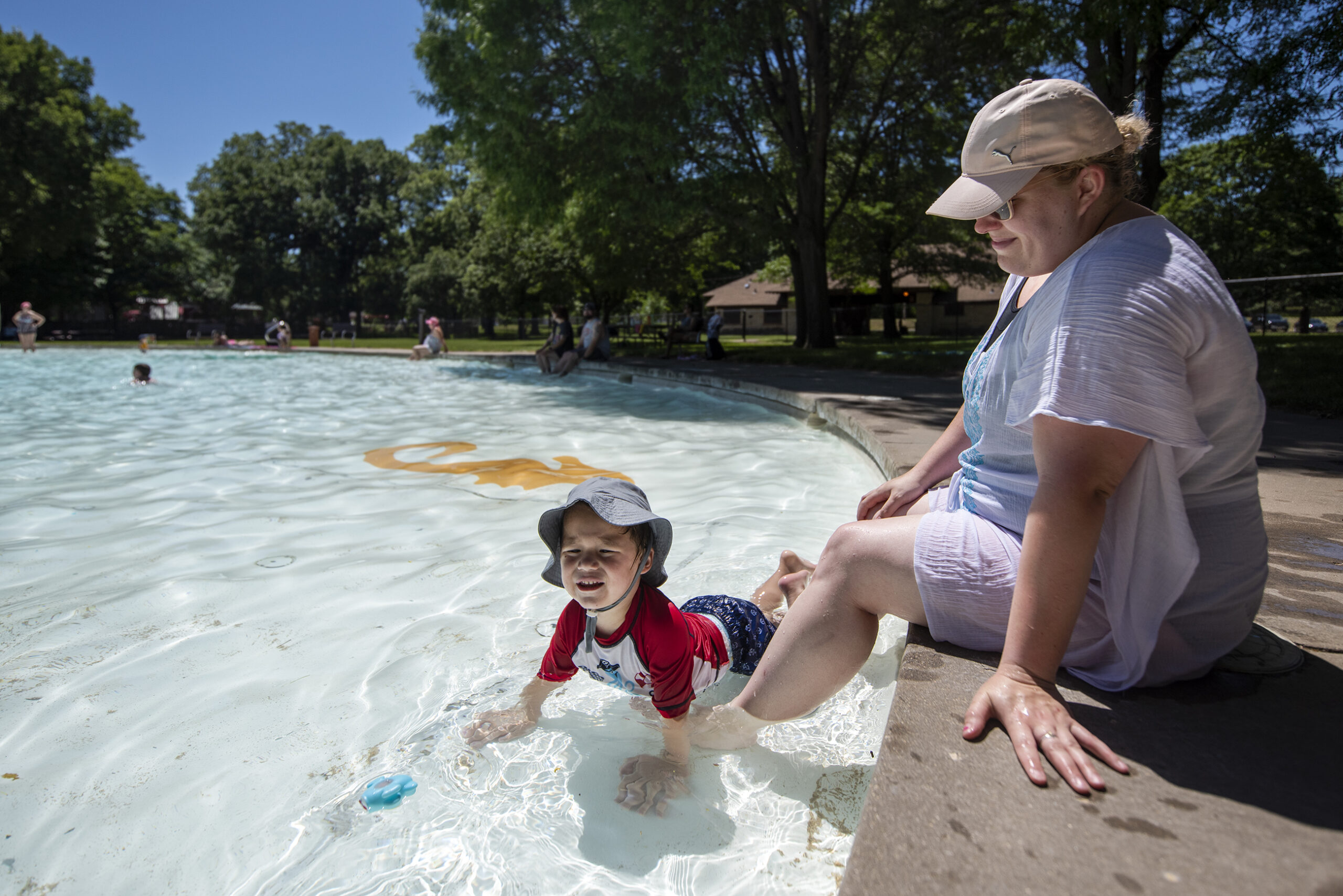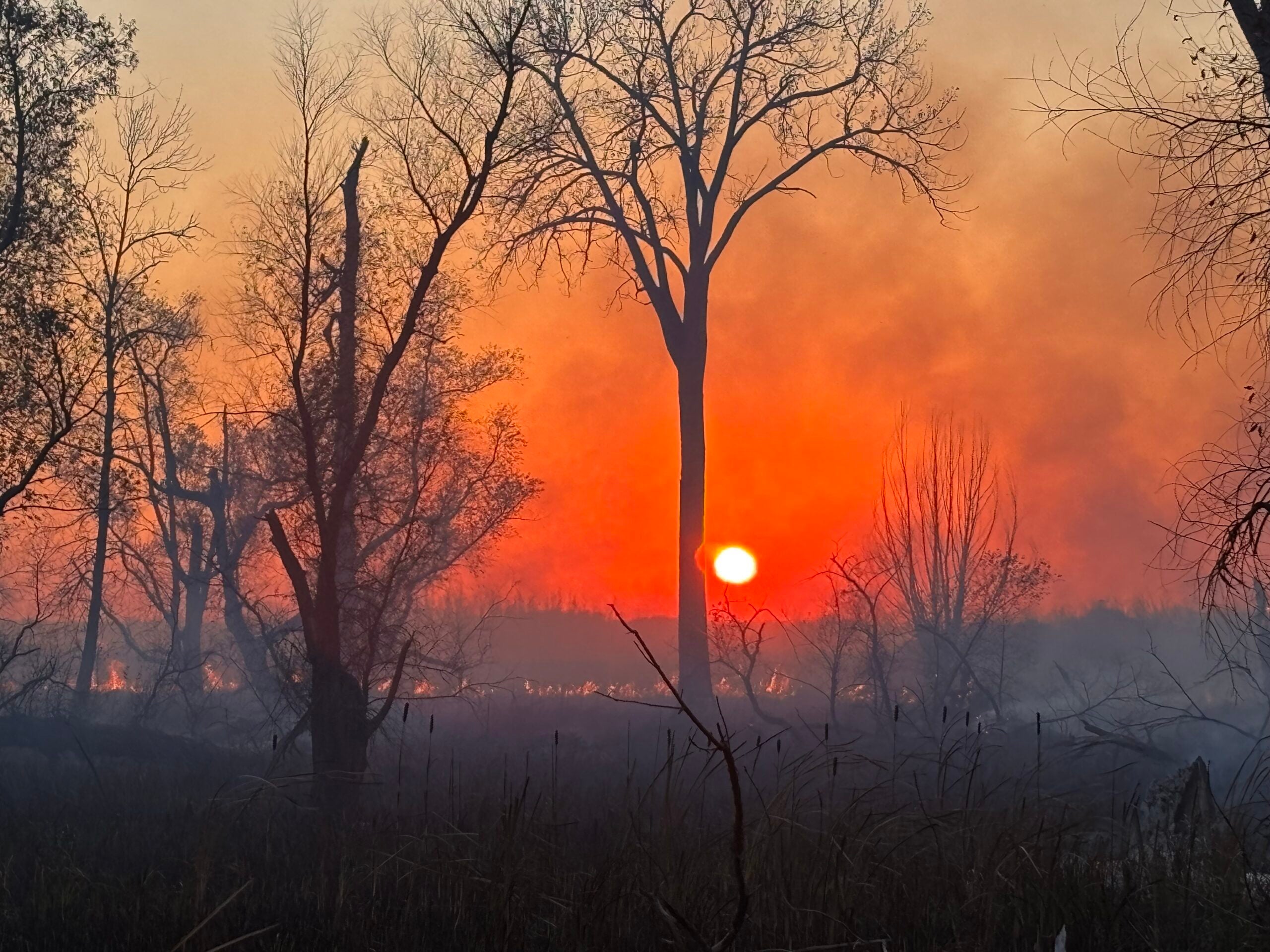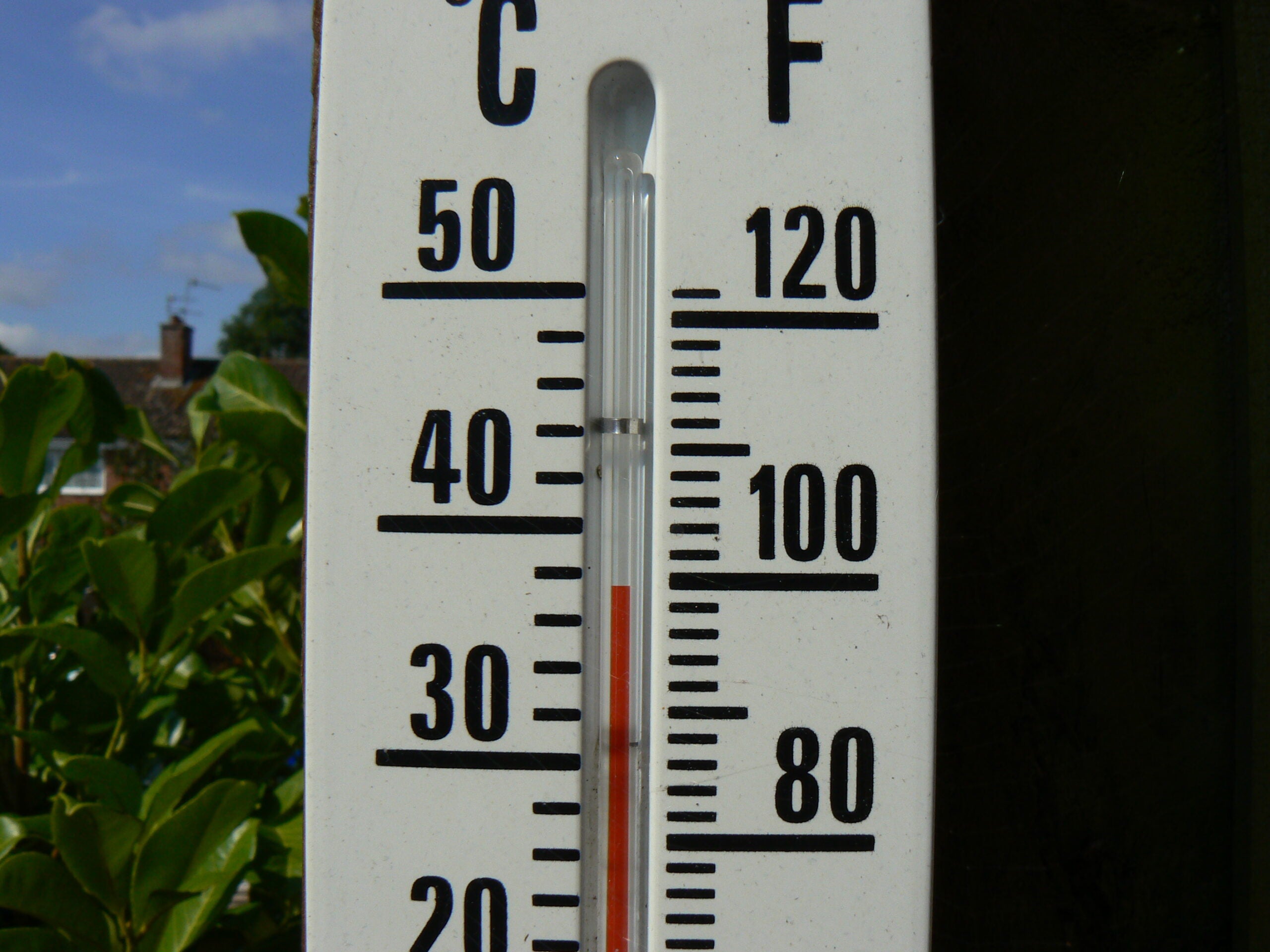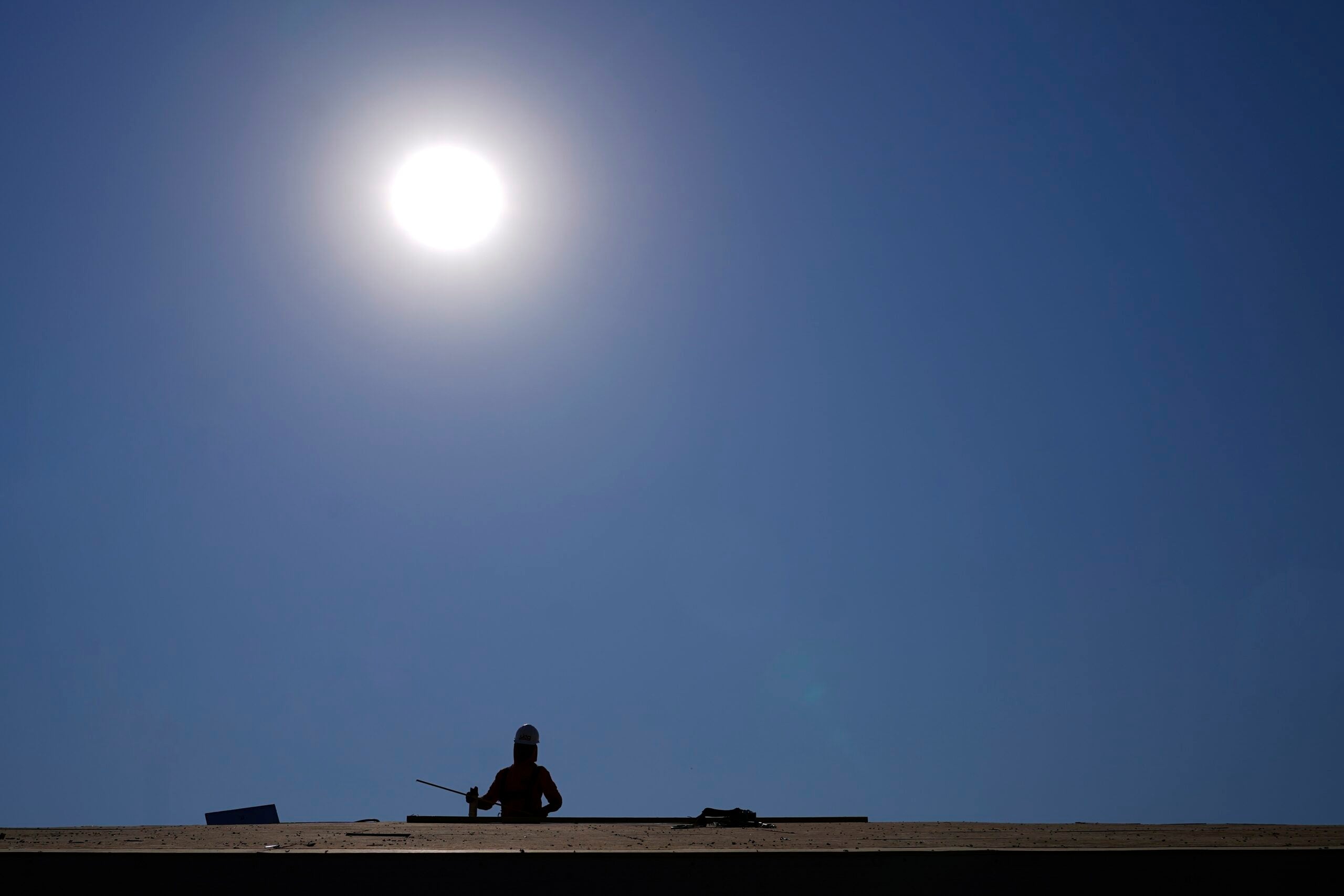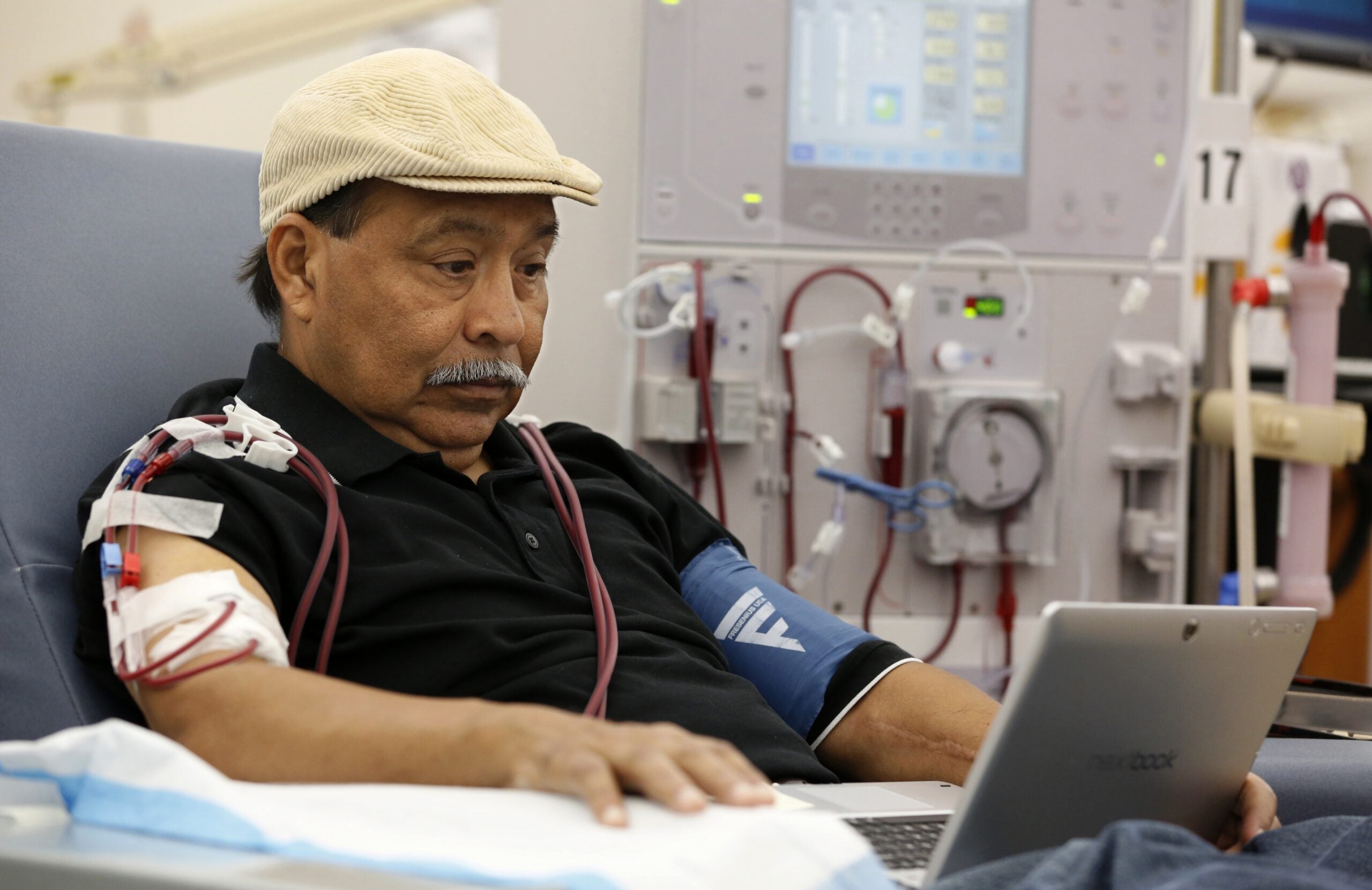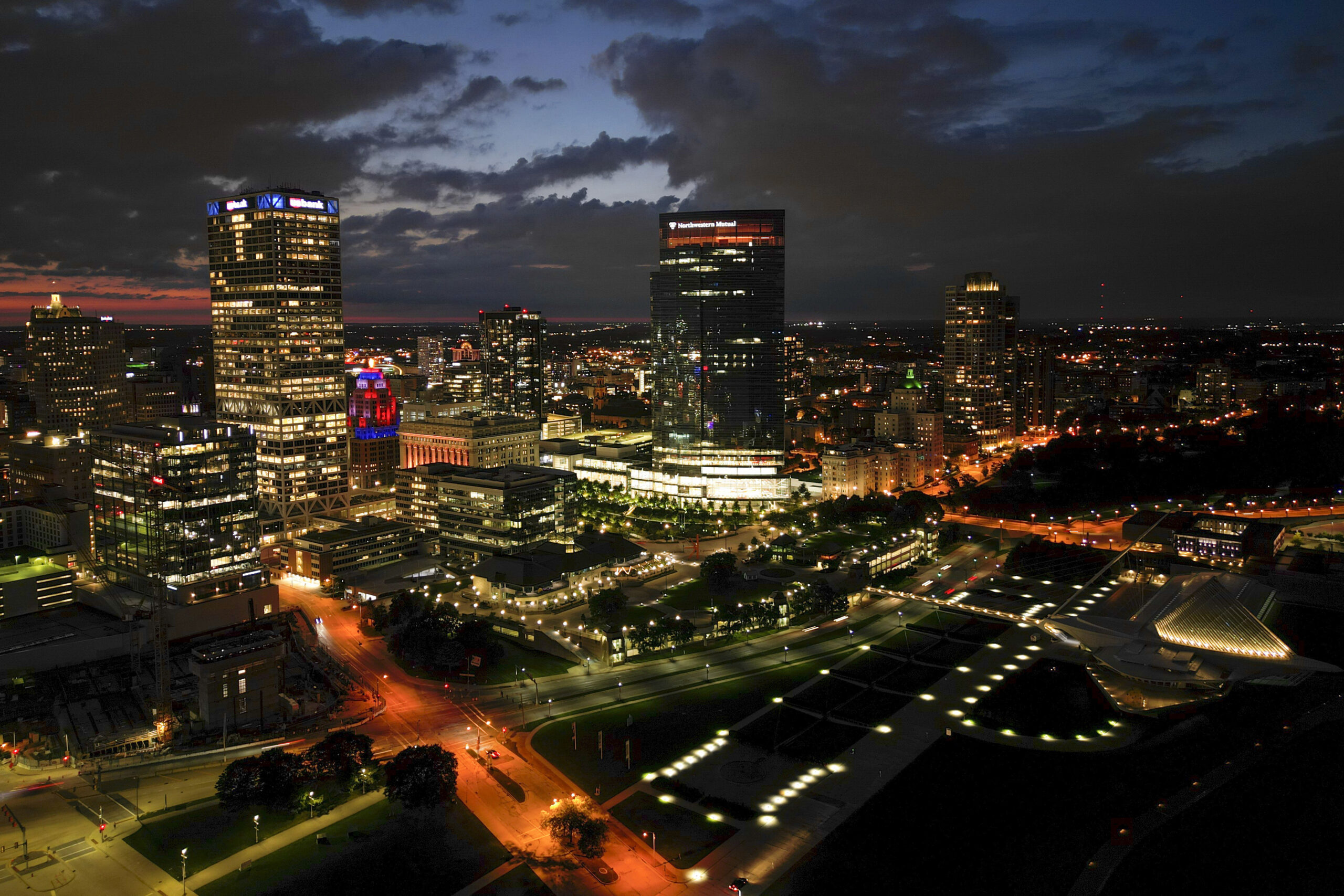A heatwave is hitting Wisconsin this week. But the state’s climatologist says it’s not a sign that Wisconsin is seeing more extreme highs like other parts of the United States.
Much of Wisconsin is expected to see temperatures at least 90 degrees and above on Thursday, with heat indices reaching the 100s. A heat advisory has been issued for western counties and part of southern Wisconsin. Hot temperatures will likely linger into Friday, though severe storms moving through the state could keep temperatures cooler.
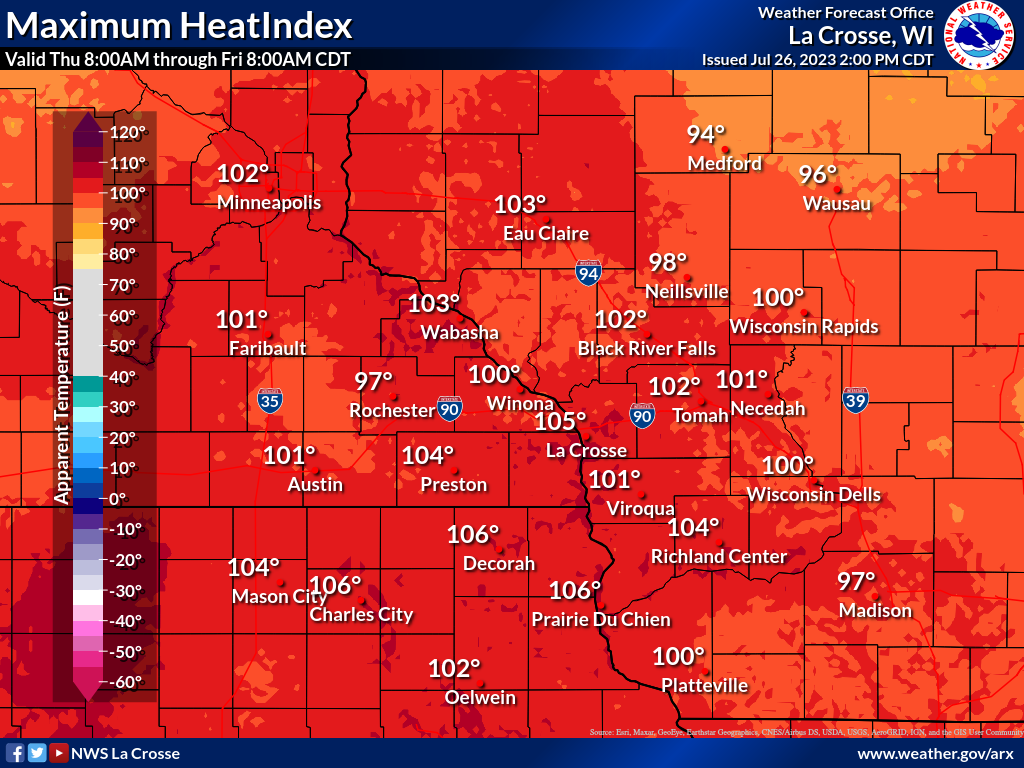
Stay informed on the latest news
Sign up for WPR’s email newsletter.
Jeff Makowski, meteorologist for the National Weather Service in La Crosse, said it’s not unusual to see hotter days during this time of year.
“That period from July into early August tends to be when the hottest temperatures would occur,” he said. “One thing that we will have (this week) that we haven’t had as much earlier this summer would be the humidity that comes along with those hotter temperatures.”
Makowksi said drought conditions since late May have held back humidity levels, making hot days feel more comfortable.
Wisconsin’s state climatologist Steve Vavrus said lower humidity has especially kept nighttime temperatures down this summer. It goes against the increase in warmer nights that has been happening in recent decades due to an overall increase in humidity.
The average temperature in the state has increased for every season because of climate change. But Vavrus said Wisconsin has not seen an increase in the hottest temperature of the year or in the number of days over 90 degrees, data points that indicate a change in extreme heat.
What’s the melting point of cheese?? Despite the warming climate, extreme (daytime) heat in WI has not been increasing. The last time our temperature exceeded 100 was in 2012–the longest such streak on record. Will this week’s heat wave finally push us over the century mark? pic.twitter.com/lGsqjh3XGK
— Steve Vavrus (@WI_ClimateSCO) July 26, 2023
“Wisconsin has been spared,” Vavrus said. “In the southwest, Phoenix, Texas, Florida, Europe, China, all over the world really, there has been an increase in extreme heat. So Wisconsin and the Upper Midwest has been an exception.”
But climatologists don’t expect this trend to last. Vavrus said it’s likely that Wisconsin will eventually see more extreme temperatures in the summer and in every season.
“Whether we’ll see more drought in Wisconsin during summers, that’s less certain,” he said. “Climate models that are making projections several decades out don’t agree with each other in terms of if weather will become wetter or drier on average in the summer in Wisconsin in the future.”
The return of humidity in Wisconsin this week raises public health concerns about the high temperatures. Makowkski said high heat with humidity makes it harder for the body to stay cool, and can lead to heat stress and heat stroke more quickly than normal. He said people should try to avoid being outside during the hottest part of the day and should check on people who don’t have air conditioning to make sure they have a place to stay cool.
Also returning this week are air quality concerns, which have been a familiar problem for the state since this spring. The state Department of Natural Resources issued an air quality advisory on Monday due to the return of smoke from wildfires that continue to burn in Canada.
So far this year, the DNR has issued 14 advisories related to particle pollution. That’s the most in a single year Wisconsin has seen over the last decade. The DNR has also issued 16 air quality advisories due to ozone this year. That’s six more than in all of 2022, but less than totals seen in 2021 and 2012.
Vavrus said data from the Environmental Protection Agency shows many Wisconsin communities like Milwaukee and Madison experienced the worst air quality readings since records started in 1999. He said there will likely be more poor air quality days in the state this summer until the wildfires to the north are extinguished.
Wisconsin Public Radio, © Copyright 2025, Board of Regents of the University of Wisconsin System and Wisconsin Educational Communications Board.
